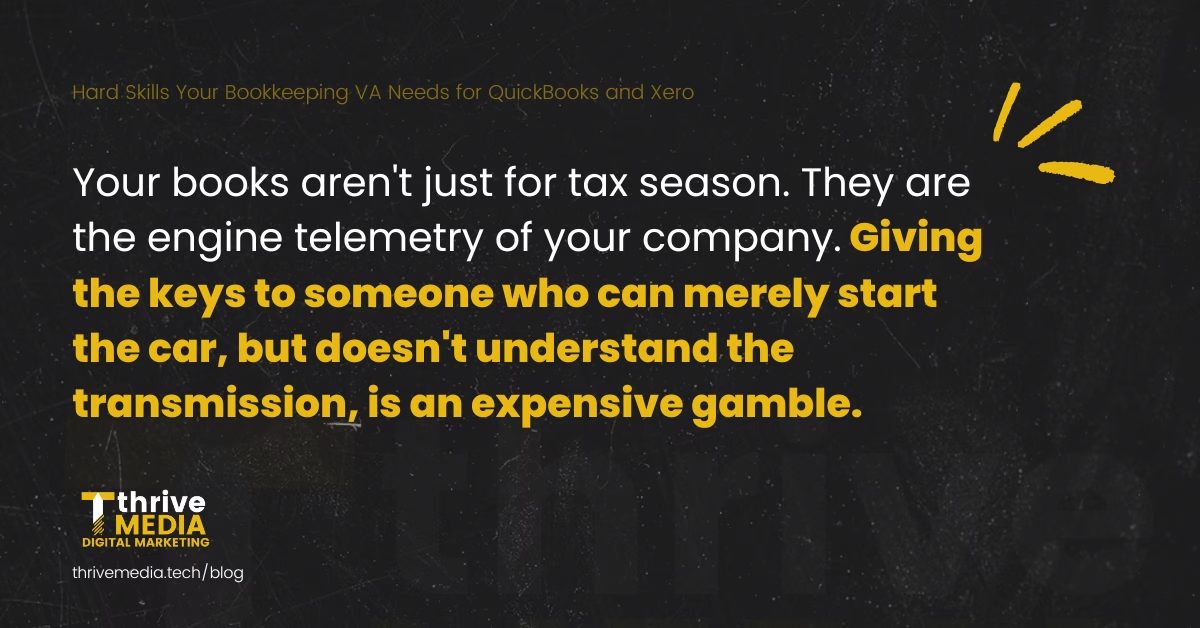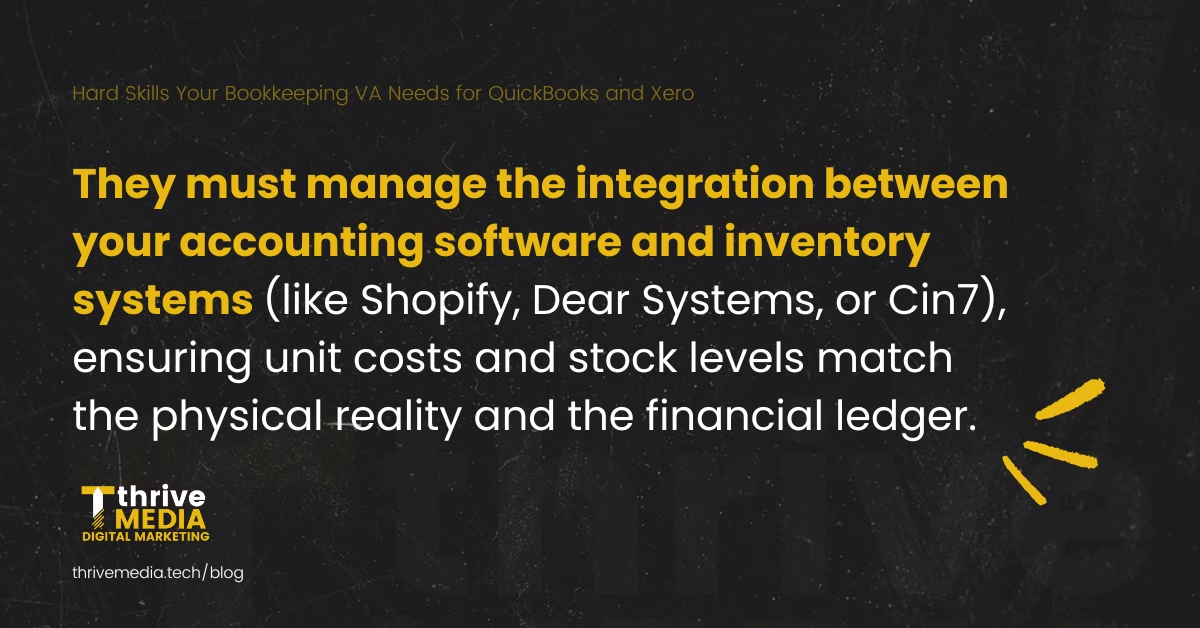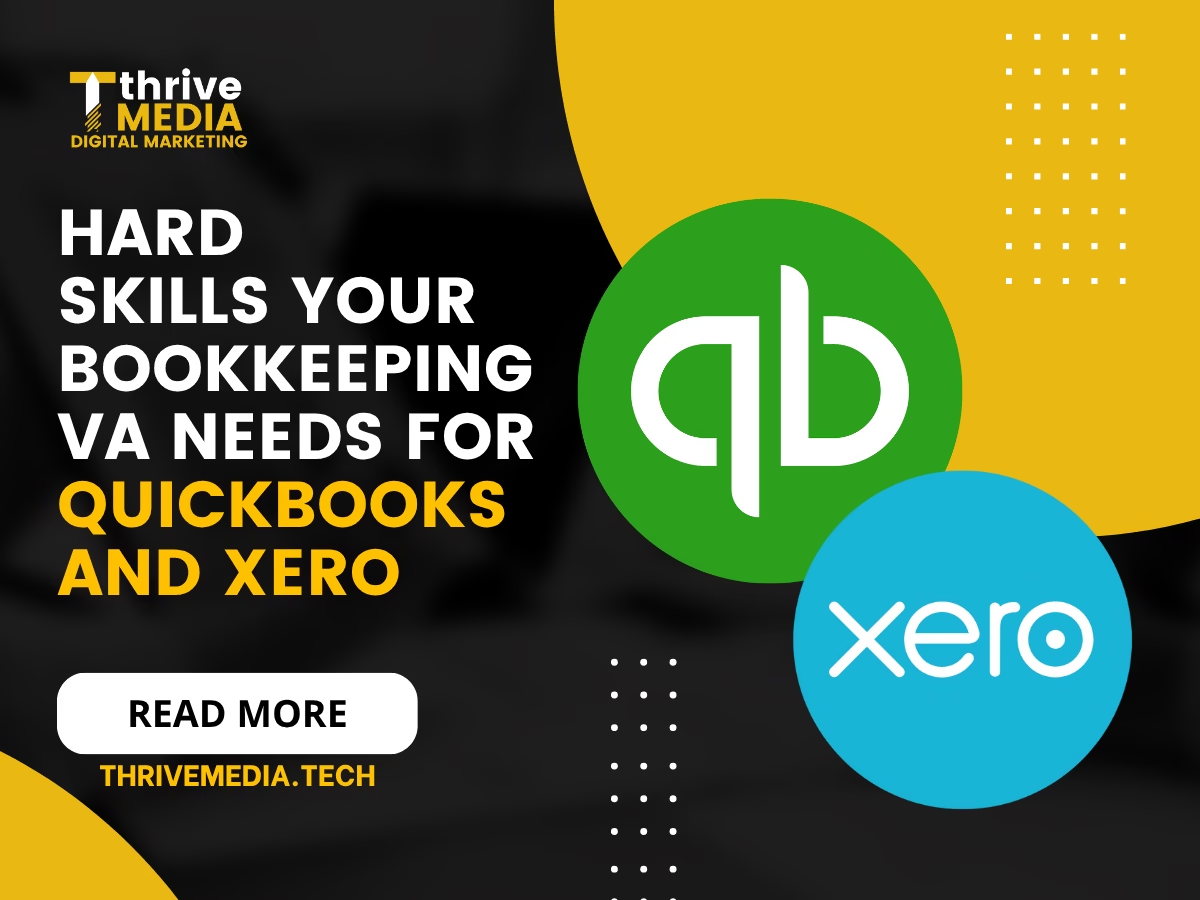Your business is growing, the sales pipeline is pumping, and the receipts pile is starting to resemble a small, paper-based mountain. You’re ready to offload the daily grind of financial management to a virtual bookkeeping assistant.
It’s a smart move. Delegation is the only way forward.
But here is the universal mistake many sharp-minded business owners make: they hire someone who is “familiar” with QuickBooks or Xero. Familiarity is what you have with your distant cousin; it’s not what you need for your P&L statement.
Your books aren’t just for tax season. They are the engine telemetry of your company. Giving the keys to someone who can merely start the car, but doesn’t understand the transmission, is an expensive gamble. You’re not looking for a data entry clerk; you’re looking for an outsourced financial gatekeeper.

The problem isn’t often a lack of effort; it’s a lack of hard-wired, verifiable hard skills. The soft skills, communication, time zones, reliability, are critical, but they’re useless if the core competency isn’t there. If your virtual assistant can’t confidently close your books and hand you a clean, decision-ready financial statement, you haven’t bought efficiency, you’ve bought a liability.
The real task, the one that separates the asset from the apprentice, is demanding proof of the following essential hard skills before anyone touches your general ledger.
1. Not Just Logging In: Core Software Mastery & Certification
The ability to click a few buttons in QuickBooks Online (QBO) or Xero does not constitute mastery. Most VAs can input an expense. That’s the easy part. The hard skill lies in understanding the complex architectural differences between the software platforms and how to use those features to enforce clean data.
Advanced QBO/Xero Architectural Comprehension
A qualified virtual bookkeeping assistant needs to understand the inherent logic of the chosen platform.
- QuickBooks Online: They must be proficient in managing the Chart of Accounts and understanding how transactions flow between accounts, specifically how to manage inventory assets, accrued liabilities, and deferred revenue. They should know the difference between QBO Simple Start, Essentials, Plus, and Advanced, and how features like Class and Location tracking are utilized for better reporting segregation. If they can’t set up and manage these tracking features consistently, your profit analysis will be useless.
- Xero: Proficiency here means mastering the use of Tracking Categories (the Xero equivalent of Classes/Locations) and understanding the intricacies of the Fixed Assets Module. Unlike QBO, Xero’s bank feeds require a more nuanced rule-setting approach. A skilled VA doesn’t just match transactions; they create highly specific, reusable bank rules to automate and standardize data input, saving dozens of hours each month and ensuring consistency.
- The ProAdvisor/Partner Status: Look beyond self-proclaimed “expertise.” A true professional will have completed the relevant, current-year certification. For QBO, this means being a certified QuickBooks ProAdvisor. For Xero, it means holding the Xero Advisor Certificate. These certifications are rigorous. They force the VA to learn the software’s deep functionality, troubleshooting methods, and best practices. If a candidate hasn’t invested the time to earn and maintain these credentials, they haven’t achieved the required level of foundational commitment. You wouldn’t trust an unlicensed electrician; don’t trust your books to an uncertified professional.
2. The Forensic Skill: Deep Transactional Reconciliation
This is the skill where the wheels typically fall off the amateur operation. Anyone can match a $10 coffee expense. But what happens when the balance sheet doesn’t match the bank statement, and the difference is exactly $1,492.37 from five months ago?

Variance Analysis and Historical Cleanup
The most critical hard skill is advanced reconciliation. It’s the forensic accounting that gives your financials integrity.
- Complex Bank and Credit Card Reconciliation: This goes beyond checking a box. It involves understanding timing differences, pending transactions, and foreign exchange variances. A skilled VA doesn’t just reconcile a statement; they proactively investigate long-standing, unreconciled transactions and ambiguous deposits or withdrawals. They need to confidently navigate complex scenarios, such as transactions entered in a prior period that haven’t cleared, or the impact of chargebacks and reversals on the overall cash picture.
- Balance Sheet Account Reconciliation: The bank accounts are only the beginning. A top-tier virtual bookkeeping assistant must reconcile all balance sheet accounts monthly. This includes verifying the accuracy of Accounts Receivable (A/R) and Accounts Payable (A/P) aging reports against the control accounts in the General Ledger. Critically, they must be able to reconcile payroll liabilities, sales tax liabilities, and fixed asset ledgers to ensure they accurately reflect the company’s true financial position at any given moment. Failing to do this is how liabilities quietly balloon and surprise you later.
- Historical Data Cleanup: Often, businesses hire VAs to clean up a mess. This requires a specific skillset: the ability to diagnose historical data errors, implement corrective journal entries, and restate previous financial periods without compromising data integrity. This involves forensic research—tying out opening balances, reviewing incorrect classification, and ensuring the books transition cleanly from the “mess” to the “model.” This capability is non-negotiable if your books aren’t already pristine.
3. Beyond Data Input: Financial Reporting and Decision Support
If your bookkeeping VA only produces a standard Profit and Loss (P&L) statement that you can barely interpret, you’re missing the point of having a finance function. Your books are a strategic tool, not just a compliance document.
Creating Actionable Intelligence
A true professional moves beyond data entry to financial analysis and reporting.
- Financial Statement Preparation: The gold standard is a VA who can confidently prepare the three core financial statements—the Income Statement (P&L), the Balance Sheet, and the Statement of Cash Flows. More importantly, they must be able to articulate what each one means. For instance, explaining why the P&L might look strong, but the Statement of Cash Flows shows a liquidity issue.
- Custom Reporting for Insight: This is a hallmark of the thought leadership approach to financial support. The best VAs use the software’s capabilities to build custom reports that directly support your operational decisions. For a service-based business, this might mean a report tracking gross profit per client. For a product business, it means generating an Inventory Valuation Summary that flags slow-moving stock. They should be able to segment your P&L by customer, product, or team using Class/Location tracking, providing the kind of detailed insight that informs budgets and expansion plans. If your VA can’t tell you where you make the most money, they’re only half-doing their job.
- Budgeting and Forecasting Support: While not a CFO’s role, a high-skill bookkeeping VA should be able to provide the historical data necessary for your budgeting process and populate pre-built forecast models. They understand the difference between cash-basis and accrual-basis accounting and why that distinction matters when projecting future performance.
4. The Niche Essentials: Payroll, Inventory, and Compliance Nuances
The modern small to medium-sized business runs on a stack of integrated software. Your bookkeeping VA needs to be the connecting hub, particularly for niche, high-risk financial areas.
Integrations and Specialized Functions
- Third-Party Payroll Integration: For companies operating in the US, UK, or Australia, payroll is almost always handled by specialized services like Gusto, ADP, or KeyPay. The VA must be skilled at monitoring the journal entries these systems automatically push into QBO or Xero. They need to understand the liabilities involved, how to reconcile payroll taxes and benefits withholdings, and how to troubleshoot common integration errors that can lead to misreported payroll expenses.
- Inventory Accounting Management: For any e-commerce or physical goods business, inventory is a beast. The VA must understand the difference between FIFO and LIFO (even if the software handles the calculation) and accurately track Cost of Goods Sold (COGS). They must manage the integration between your accounting software and inventory systems (like Shopify, Dear Systems, or Cin7), ensuring unit costs and stock levels match the physical reality and the financial ledger. This is a highly technical skill that protects businesses from major year-end adjustments.
- Sales Tax and Regulatory Compliance: While they are not the CPA, the VA is responsible for correctly categorizing revenue and expenses for sales tax purposes. They need to understand the concept of nexus and how to ensure transactions are tagged correctly for sales tax collection in different jurisdictions. They should know how to properly file a 1099 or equivalent compliance document by having the vendor data meticulously organized throughout the year.

The Bottom Line: Confidence Over Convenience
Hiring an inexpensive, under-skilled assistant to manage your finances isn’t saving money; it’s delaying a financial reckoning. The most successful executives understand that their time is better spent steering the business than fixing a flawed ledger.
When you look for a virtual bookkeeping assistant, prioritize verifiable, hard-earned expertise over low hourly rates. Look for the team that already vet candidates against these rigorous standards, the ones who provide support staff where these skills are not hoped for, but guaranteed.
Don’t settle for “familiarity.” Demand mastery. Invest in a team that views your financial records not as a chore, but as the powerful, clean roadmap you need to scale your company.











